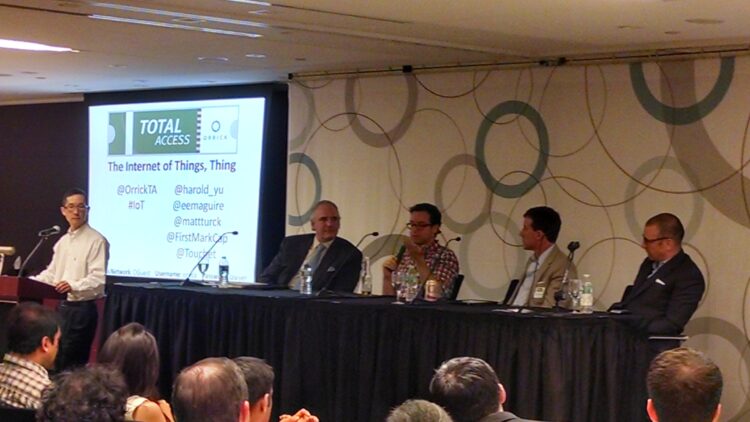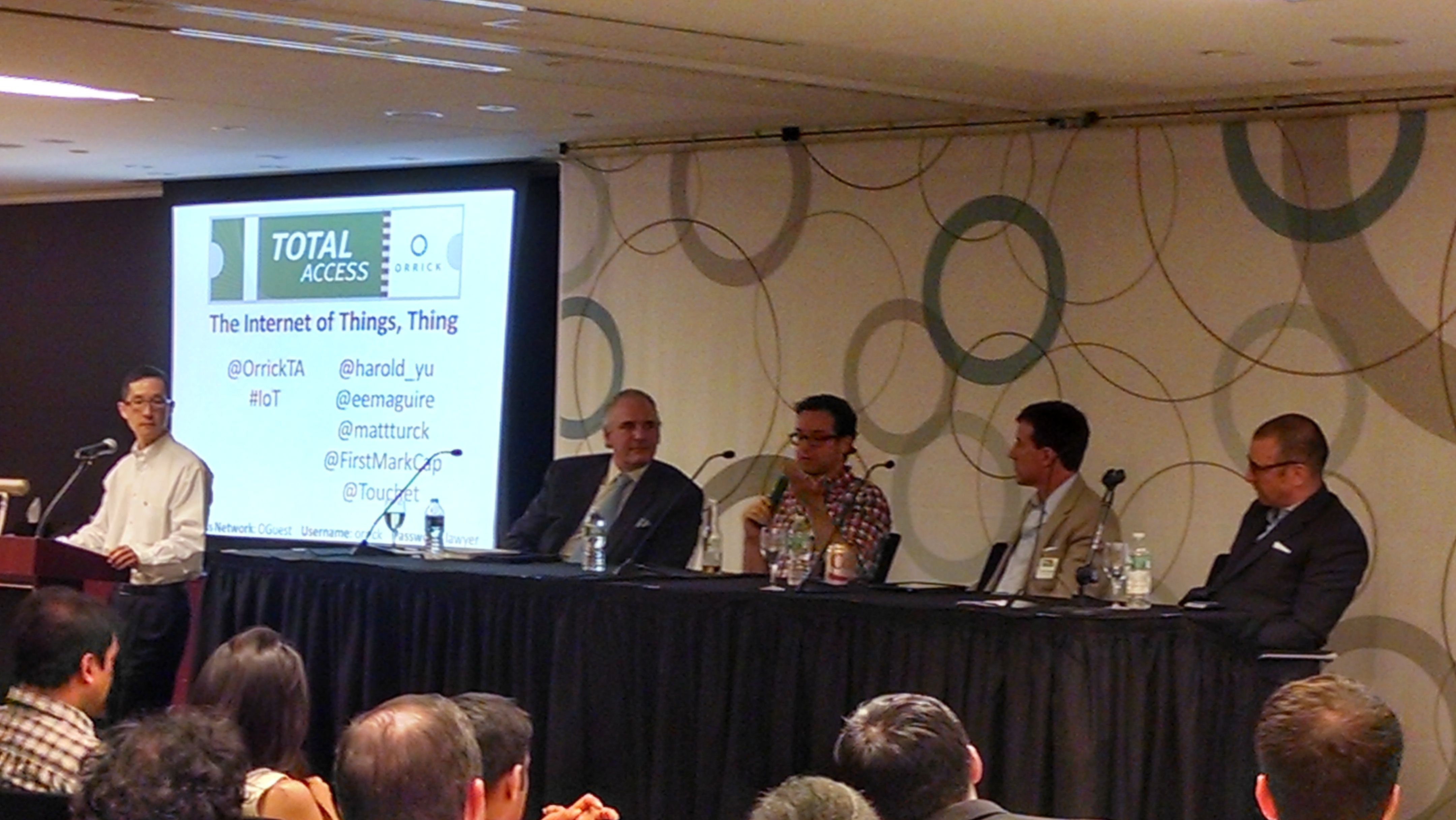High above street level, in the swank, crystalline Orrick offices on the 23rd floor of the CBS building in midtown Manhattan, a group of entrepreneurs and investors came together to hear a panel discussion on the future of the internet–the Internet of Things.
Moderated by Harold Yu of Orrick, the panel consisted of Ed Maguire, a Senior Analyst and Managing Director of CLSA Americas; Tom Touchet, the CEO of City 24/7; Matt Turck, a Managing Director of FirstMark Capital (who also hosts Hardwired New York, a monthly event focused on the intersection between the physical and digital worlds); and Patrick Ugeux, the Executive Vice President for Strategy at Clear Channel Outdoor and had been brought together to explain the Internet of Things and of the opportunities that it holds for start-ups and small businesses.
“The Internet of Things is the idea that all devices connected to the physical world can exchange information,” said Maguire.
If the first stage of the internet was connecting us to companies, and vice versa, through companies like Amazon, Google and the websites brought about through the dotcom bubble of the 1990’s; and the second stage was us connecting to each other, through websites like Twitter and Facebook; then the third stage would be connecting whatever’s left to everything, this is the Internet of Things.
Calling this concept the Internet of Things is perhaps a misnomer. It is not so much an internet of random things, as it is the connecting of all thing things in our daily lives to the internet: it’s an Internet of Everything.
“The Internet of Things isn’t really about the internet or things, it’s about connecting people and devices,” Turck explained.
The idea is that everything you own will be connected to everything else via the Internet. For example, your roommate finishes the last of the milk while you’re driving home from work. Your internet connected refrigerator sends a push notification to your phone to tell you that it’s added milk to your shopping list, your car then reads the notification to you–since it’s also connected to the internet and you can’t read it since you are driving. Your GPS then informs you that there are a dozen places to buy milk between your current location and home. An upcoming billboard then learns from your car that you need to go grocery shopping and switches to an advertisement for a sale at a grocery store near the next exit.
Companies like Nest Labs are already working on ways of integrating the appliances in your home with each other and with your schedule, like a wristband that tells your thermostat when you wake up or a car that informs it of when you’re on the way home so it knows to start working.
“It’s all about personal impact,” said Tom Touchet.
And data collection, of course.
According to the panel, this will open up opportunities not only for the big companies that will make the internet connected devices of the future, but also for entrepreneurs looking to add more to the experience in the form of new apps, programs and increased versatility.
“We’ve seen the resurgence of companies like Pandora, thanks to internet connected cars,” said Maguire.
The Internet of Things, specifically the incoming wave of new Internet connected devices, will create a number of new platforms for small businesses and start-ups to innovate on. And with the rise of new sensors associated with the Internet of Things, large companies will be able to offer new business models, an example being Rolls Royce playing with the idea of renting out its jet engines to airlines, and BMW renting its cars to consumers and adjusting the rent based on usage—much the way utilities currently work. Something that, prior to the new wave of sensors hitting the market, would not have been possible.
“All of these technologies are allowing businesses to transform themselves. Businesses that normally sell things can install sensors that would allow for them to know how their products are doing and open up a new market in servicing them,” said Maguire.
As with the new technologies that have come before, there are rumblings of a possible platform war. A battle between Google, Microsoft, Apple and others for your home, much like BluRay vs HDDVD and even further back VHS vs Betamax. For consumers and entrepreneurs, the question would become which company to support. A bad choice could have consumers out hundreds of dollars and entrepreneurs potentially out millions.
“It’s too early to call a winner, but the Internet of Things is a little different. We aren’t really dealing with a monolithic market. There are going to be platforms that emerge as winners, but it’s hard to imagine a single platform that will gobble everything else up and make them irrelevant,” Maguire added.
So as the Third Age of the internet unfolds – the Internet of Things – companies, entrepreneurs, and consumers will find much potential to not only make money, but to streamline their lives and businesses. Again.




